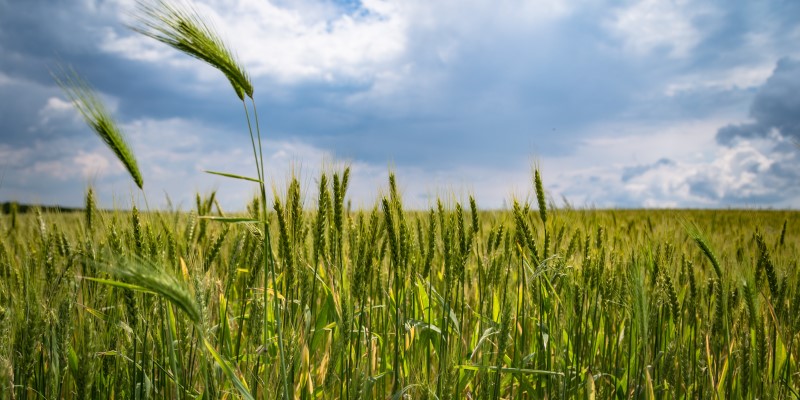‘Organic produce is so expensive! How the hell can they charge that much for one fruit?’
‘Did you see how much that tomato was?’ ‘Wasn’t that the price for all of them?’ ‘No, just one.’
You might have heard something like this whispered at a farmers market – or maybe even said aloud. As with anything, there are pros and cons, and there might actually be a reason why organic products cost what they do. That’s what I’ll look at today when I go into the advantages and disadvantages of organic farming. Why is the produce so expensive? Do the farmers ride tractors made of gold?
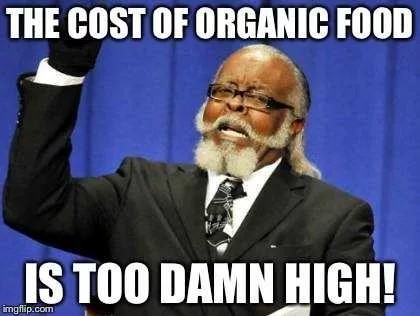
Let’s step into the world of sustainable agriculture, where crops sway in harmony, the sun shines over sunlit fields, and the promise of healthy produce fills the air. The farmer looks over his field with pride, massages his sore back and wonders if the crops will yield enough to pay for his organic certification that is due once again.
Organic farming is an agricultural practice that promotes sustainability and avoids synthetic pesticides and herbicides. While it offers numerous benefits, such as providing fresh and healthy food, protecting the environment, and preserving biodiversity, some drawbacks exist. In this article, we will explore both the advantages and disadvantages of organic farming, allowing you to make informed choices about your food consumption and its impact on the world.
Key Takeaways of Organic Farming
- Reduces the use of hazardous chemicals harmful to the environment and water sources.
- Provides fresh and healthy food free from pesticides and herbicides.
- Helps protect biodiversity by avoiding the use of synthetic chemicals.
- Has higher levels of beneficial nutrients and antioxidants compared to conventionally grown food.
- Requires more labour-intensive work and monitoring than conventional farming.
- Higher costs are due to lower yields
Table of Contents

The Advantages of Organic Farming
Have you ever wondered what goes into organic farming? It’s more involved than being a conventional farmer – there are fees involved in being certified as an organic farmer and the work itself is more labour-intensive. I’ll go over these aspects a little later. In this section, I’ll look at why organic farming is good for the environment and for us as consumers. After reading this, you’ll hopefully understand why the produce is more expensive than supermarket alternatives.
Organic Farming is a Sustainable Practice
Organic farming prioritises environmental preservation and promotes biodiversity. Because of this, organic farmers use natural fertilisers instead of synthetic pesticides, herbicides, antibiotics, and growth hormones. In the case of soil health, using natural methods supports soil health by preventing soil erosion and improving its quality. By avoiding chemicals, organic farming protects the ecological balance by ensuring that harmful toxins are not introduced into the environment.
What is Biodiversity? This is the animals, plants, insects, fungi and microorganisms that you find in one area. Like an intricate web, these species and organisms work together in ecosystems to maintain balance and support life.
From this natural style of farming, consumers can enjoy fresh and healthy food without worrying about the hazards of pesticides and herbicides. Additionally, organic food has been found to contain higher levels of beneficial nutrients and antioxidants than conventionally grown produce.
There are disadvantages, such as lower crop yields and higher production costs associated with organic farming, which I’ll look at later in this article. However, organic farming is more sustainable in terms of how it works with nature rather than against it. Buying organic produce should be a consideration if you’re concerned about environmental conservation and lowering your carbon footprint.
Organic Farming is Environmentally Friendly
Organic farming relies on several natural practices that work with the environment to grow crops. The table below lists some of these practices:
| Practice | Environmental Benefit |
|---|---|
| Crop Rotation | Maintains soil fertility and reduces pests |
| Cover Cropping | Prevents soil erosion and enhances soil quality |
| Composting & Mulching | Recycles organic matter, enriches soil |
| Agroforestry | Increases biodiversity and sequesters carbon |
| Reduced Tillage | Preserves soil structure and reduces carbon emissions |
| Polyculture | Enhances ecosystem resilience and diversity |
| Natural Predators | Controls pest populations naturally |
| Water Conservation | Minimises water usage and runoff |
| No GMOs | Preserves genetic diversity |
Organic Farmers Support Healthier Soil Practices
Farmers use natural organic methods that help to keep their soil healthy, even when it isn’t being used! These methods increase organic matter in the soil; this leads to the soil being able to retain water and increases the nutrients that plants enjoy. Here are some of the organic farming methods that ensure that their soil is kept fertile:
- Composting: Where conventional farmers use synthetic fertilisers that contaminate water and harm local wildlife, organic farmers use composting to naturally introduce microorganisms and nutrients that lead to healthy plant growth.
- Crop Rotation: This involves planting crops in a sequence that returns nutrients to the soil that the previous crop removed. Using crop rotation on the same piece of land improves the health of the soil and prevents weeds and pests. Below is an example of crop rotation: Crop Restores Depletes Corn (Maize) – N/A – Nitrogen Soybeans – Nitrogen – N/A Winter Wheat – Soil structure – Nitrogen, other nutrients
- Pest Management: Rather than use chemical pesticides to control insects, organic farmers encourage predators that feast on pests but do not affect the crop. Farmers prefer prevention as their first line of defence – this results in healthy soil and stronger plants that become more resilient to pests.
- Cover Crops: In between growing seasons, organic farmers fill the field with manure or mulch when not producing a crop. Such a crop is planted to:
- control weeds and pests
- increase biodiversity
- protect the soil from erosion and loss of nutrients.
Natural Fertilisers Are Used – No Chemicals Here!
Organic farmers use natural fertilisers like compost and animal manure in organic farming rather than relying on synthetic chemicals. This practice is one of the key advantages of organic agriculture as it avoids harmful chemicals traditional farmers use. Natural fertilisers provide essential nutrients to the soil and improve its structure and water-holding capacity. They also help promote biodiversity and contribute to overall environmental sustainability.
Did you know that organic farming can reduce the use of hazardous chemicals by up to 97%?
ORGANICS EUROPE
Reduced Greenhouse Emissions
Organic farming offers several advantages when it comes to reducing greenhouse emissions. By avoiding synthetic pesticides and fertilisers, organic farmers help minimise the release of harmful chemicals into the atmosphere. Organic farming practices like crop rotation and composting also contribute to carbon sequestration, reducing greenhouse gas emissions.
Organic Farming is Energy-Efficient
Organic farmers prioritise sustainable practices that require less energy compared to conventional farming methods. Their focus on natural fertilisers, crop rotation, and biological pest control, reduces the need for synthetic inputs. This energy-efficient approach helps conserve resources and reduces greenhouse gas emissions.
| Energy Efficiency Factors | How These Factors Reduce Energy Usage |
|---|---|
| Reduced Synthetic Inputs | Minimizes energy-intensive processes related to manufacturing, transportation, and application of synthetic chemicals. |
| Natural Soil Fertility Management | Relies on composting, cover cropping, and crop rotation to maintain fertile soil without energy-intensive synthetic fertilizers. |
| Diverse Crop Rotations and Intercropping | Enhances ecosystem resilience, reducing reliance on energy-intensive pest and disease control methods. |
| Avoidance of GMOs | Eliminates energy-intensive genetic engineering, biotechnology, and laboratory processes associated with GMO crops. |
| Minimal Tillage | Preserves soil structure and reduces fuel consumption by avoiding frequent plowing and cultivation. |
| Agroecological Practices | Works in harmony with natural ecosystems, minimising energy needs for artificial irrigation and climate control. |
| Biodiversity Conservation | Supports biodiversity, reducing the need for energy-intensive insecticides. |
| Energy Reduction in Processing | It involves fewer synthetic additives and processing steps, lowering energy consumption during food manufacturing. |
| Carbon Footprint Reduction | Emphasis on carbon sequestration through practices like cover cropping and agroforestry. |
| Localized Production | Prioritises local markets and short supply chains, reducing energy needed for long-distance transportation. |
| Enhanced Water Management | Conserves water resources and reduces energy use for irrigation |
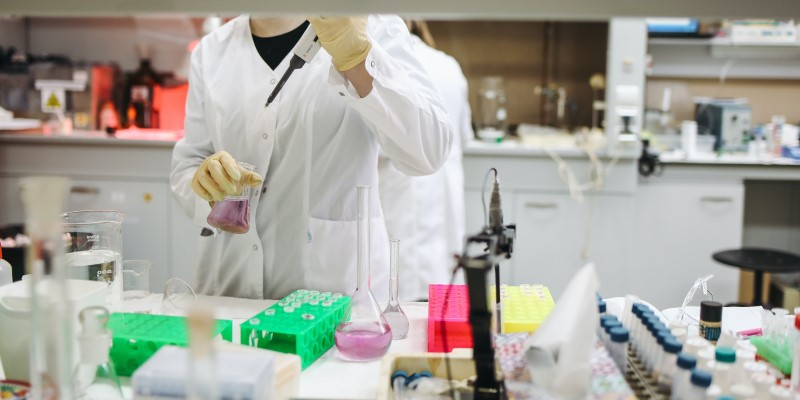
Organic Farming Doesn’t Use Genetically Modified Organisms (GMOs)
Organic farmers strictly avoid using Genetically Modified Organisms (GMOs) in their practices. This ensures their crops are grown naturally and without any genetic modifications.
What are GMOs? GMOs are plants or animals whose DNA has been altered through genetic engineering techniques. GMOs are used to give products a longer shelf-life, enhance flavour and nutrition and make produce more resilient to pests and diseases. Unfortunately, GMOs have a dark side; they may trigger allergic reactions and even lead to cancer.
This commitment to non-GMO farming offers several advantages:
Healthier and safer food: By not using GMOs, organic farming provides consumers with food free from potential health risks associated with genetically modified ingredients.
Environmental sustainability: Organic farming promotes biodiversity by preserving natural ecosystems and avoiding the negative impacts that GMOs can have on biodiversity.
Organic certifications: The absence of GMOs in organic farming is a requirement for obtaining organic certifications. These certifications assure consumers that they purchase products that meet strict organic standards.
However, it’s important to note that not using GMOs also presents some challenges for organic farmers:
- Limited crop options: Without access to GMO crops, organic farmers may have fewer options when it comes to pest resistance or crop yield improvements.
- Increased susceptibility to pests: Non-GMO crops may be more vulnerable to pests than their genetically modified counterparts, requiring additional pest control measures.
- Higher production costs: The exclusion of GMOs in organic farming can lead to increased production costs due to the need for alternative pest control methods and lower crop yields.
The Produce is Healthier
You’d hope that for all the trouble they go through, organic production would make the produce healthier and more nutritious. Thankfully, it does!
Studies have shown that the produce grown through organic farming is healthier and contains higher levels of:
- beneficial nutrients
- antioxidants
- vitamins
- minerals
- proteins
- fibre
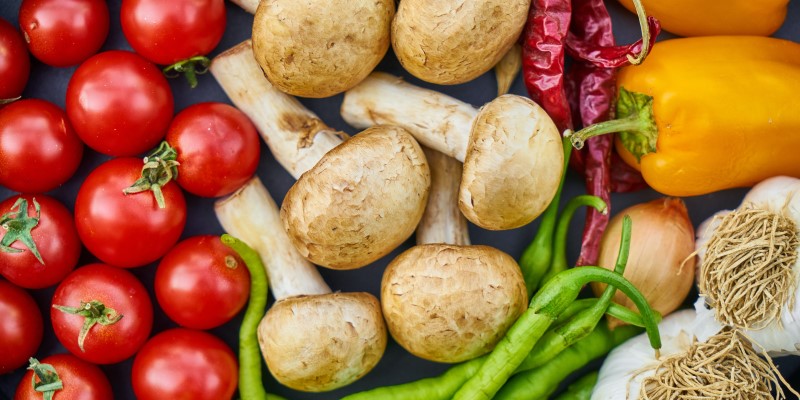
These nutrient-rich foods contribute to our overall health, support immune function, reduce the risk of chronic diseases like heart disease and cancer, and promote optimal well-being.
At the risk of sounding like a late-night sales advertisement – But wait, that’s not all! Since organic farming avoids synthetic pesticides and herbicides, the produce is free from harmful chemical residues. Sorry to all the germophobes out there since you will probably look at your supermarket fruit a little differently now. But this is all the more reason to pay a little more and switch to an alternative that won’t cause long-term health issues.
Farmers Have a Healthier Work Environment
The practices mentioned not only have a positive effect on the fruit and vegetables the farmers create – but also has a significant effect on the farm workers themselves. Organic farming provides a healthier work environment than conventional farming methods, primarily due to reduced pesticide exposure. As you can see below, the key reason that farmers experience a healthier work environment is a direct result of their avoidance of chemicals:
- Limited pesticide exposure: Farmers are not exposed to harmful chemicals since organic farming does not involve the use of synthetic pesticides
- Less pest-related health hazards: Since organic farmers rely on natural predators and soil management to combat pests, they face fewer health risks associated with handling toxic chemicals
- Reduced respiratory issues: Organic farming helps prevent respiratory problems from inhaling pesticide fumes during the application of weed and insect killers
- Lower risk of chemical poisoning: Less likely to experience chemical poisoning incidents since they do not regularly handle or come into contact with toxic pesticides
The Disadvantages of Organic Farming
Although there are many obvious advantages, there are also cons of organic farming:
- Produce costs more than conventionally grown products
- Organic farming is labour-intensive
- Farmers are required to invest more time and effort in the care of their crops
- Organic certification is rigorous and expensive, requiring a yearly fee
- Crops have lower yields and are more susceptible to diseases and pests
Let’s take a look at these in a little more detail.
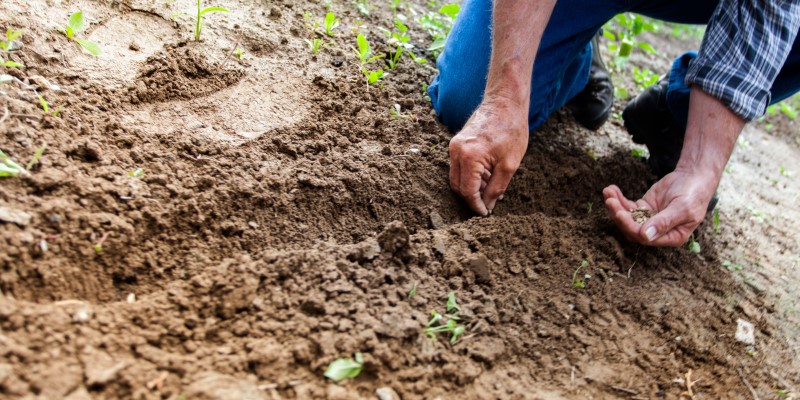
Organic Farming is Labour Intensive
Organic farming uses natural processes like pest control, soil management and manual weed control. Because of this, farmers need to invest more time and effort in doing this work as well as monitoring their crops.
Conventional farmers use chemicals to handle pests and weeds – an organic farmer, on the other hand, doesn’t have this crutch to lean on. They must learn to rotate their crops and mulch to nourish the soil. This then leads also to the crop being more pest-free.
Since this requires more time, the organic farmer needs extra workers to help carry out these physical tasks. While this does mean jobs for the local community, it also means more wage costs for the farmer.
The Organic Certification Process is Rigorous and Costly
The rigorous and costly certification process can pose challenges for organic farmers. Obtaining organic certification involves meeting strict standards and undergoing inspections by certified organisations. Here are some key points about the organic certification process:
- Documentation: Farmers are expected to maintain detailed records of their farming practices, including inputs used, crop rotations, and pest management strategies.
- Inspections: Certified inspectors visit farms to ensure compliance with organic regulations, including verifying that synthetic chemicals have not been used.
- Transition period: Farmers must adhere to specific guidelines during a transitional period, which can last several years before achieving full organic certification.
While the organic certification process ensures the integrity of organic products, it can be time-consuming and expensive for farmers. They not only have the costs of becoming certified, but there are annual costs for regular inspections to remain certified. These costs may discourage some farmers from even pursuing organic farming. Despite these challenges, the rigorous certification process is crucial in upholding the principles and benefits of organic farming.
Organic Crops Have Low Yields and are Susceptible to Disease and Pests
To be organically certified means that natural methods need to be used to grow crops. Organic farmers cannot use laboratory-grown GMOs to make their crops stronger and grow faster – they need to use techniques that do the work that synthetic chemicals do for conventional farmers.
As a result, organic crops often have lower yields and are more vulnerable to disease and pests. Organic farming may lead to lower yields due to its reliance on natural fertilisers, which may provide only some of the necessary nutrients in optimal quantities. Additionally, organic farmers often need help with pest control since they cannot rely on synthetic chemicals to eradicate or deter pests.
Disease outbreaks can devastate organic crops, leading to vastly reduced yields compared to conventional farming methods. Organic farmers need to invest significant time and effort into monitoring their crops closely, implementing cultural practices that promote plant health, and utilising natural enemies or defences against pests.
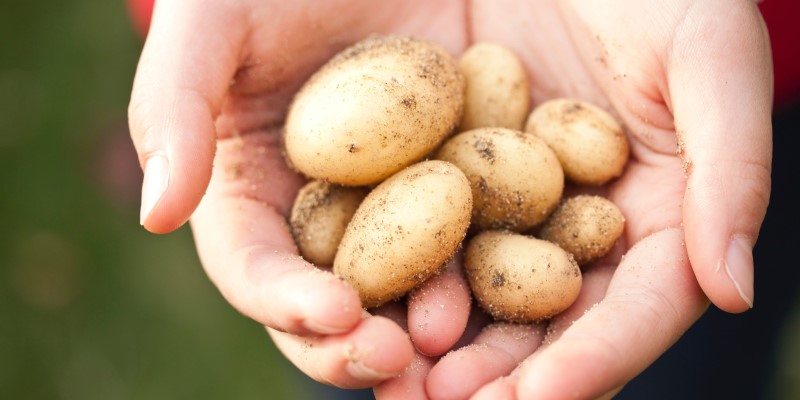
Organic Produce Costs More
All this brings us to the big con of organic farming – no, I don’t mean ‘con’, as if to say we are being scammed into paying more. Just that it’s the big negative – it’s the one that the sceptics will point to and say ‘We’re being fleeced!’. The produce does cost more due to the methods used, the rules that need to be followed and the lower amounts that can be produced.
As I’ve looked at above, there are many factors that an organic farmer needs to consider that a conventional farmer doesn’t. The table below summarises these factors and gives the reasons they contribute to higher prices:
| Factors Leading to Higher Organic Produce Costs | How They Contribute |
|---|---|
| Limited economies of scale | Organic farms often operate on a smaller scale, leading to higher production costs per unit due to reduced efficiency and utilization of resources. |
| Labor-intensive cultivation methods | Organic farming typically relies more on manual labour for weeding and pest control tasks, increasing labour costs. |
| Longer production cycles | Organic crops may take longer to grow due to the absence of synthetic fertilizers and pesticides, leading to higher labour, maintenance, and opportunity costs. |
| Certification and compliance costs | Organic farms need to meet specific certification standards, which involve expenses for inspections, paperwork, and maintaining compliance. |
| Higher pest and weed management costs | Organic farms often use more labour-intensive and less efficient pest and weed control methods, driving up costs. |
| Lower crop yields | Organic farming can yield lower yields than conventional methods, leading to higher production costs per unit of produce. |
| Limited synthetic inputs | Organic farming restricts synthetic fertilizers and pesticides, potentially reducing yield and increasing costs for organic alternatives. |
| Soil management and amendments | Organic farms focus on soil health through natural amendments, which can be costlier than conventional chemical fertilizers. |
| Post-harvest handling requirements | Organic produce may require more careful handling and storage to maintain its certification, adding to post-harvest costs. |
| Market demand and price premiums | Consumers often expect to pay more for organic produce, allowing producers to charge higher prices to offset increased production costs. |
| Research and experimentation | Developing effective organic farming techniques requires ongoing research and experimentation, which can be financially demanding. |
| Risk of crop loss | Without synthetic pesticides, organic crops can be more susceptible to pests and diseases, increasing the risk of crop loss and affecting overall profitability. |
| Transitioning to organic farming | Farmers transitioning from conventional to organic methods may face initial costs without immediate access to higher organic prices. |

Advantages and Disadvantages of Organic Farming: So, What’s The Conclusion?
Organic farming is all about working with the environment to get healthy, natural produce. Farmers are not allowed to use chemicals to enhance and protect their crops. This has a direct result on crop yield and also on the end-user. Basically, it costs more for us to eat organic.
I’m not here to bang my drum and shout from the rooftops that we all need to go organic. That’s for you to decide – my goal was to present the facts for you to interpret how you like. I may not have convinced you that organic produce costs are justified. However, if you are a sceptic and can admit that there’s more to organic farming than you originally thought, this article has succeeded.
Anyway, hopefully, there’s less alarmed faces and whispers of ‘What a Joke! Those veggies must be made of gold!’ at the next farmers market you go to.
About the Author

ALEX
Alex is an adventurous guy in his early 30s who embodies a touch of the hippie. Passionate about social and environmental causes, he’s managed to travel the world, from immersing himself in Japanese culture for a year to embarking on a six-month backpacking escapade through Peru. Alex loves to learn and has taken numerous courses in Environmental Science and Conservation.
Alex’s commitment to recycling fuels his mission to repurpose discarded items. As a result, he favours garage sale treasures over department stores. He prefers walking and biking to driving. Alex spreads awareness about organic living through Just Organics, joined by his like-minded friend Charlie.

